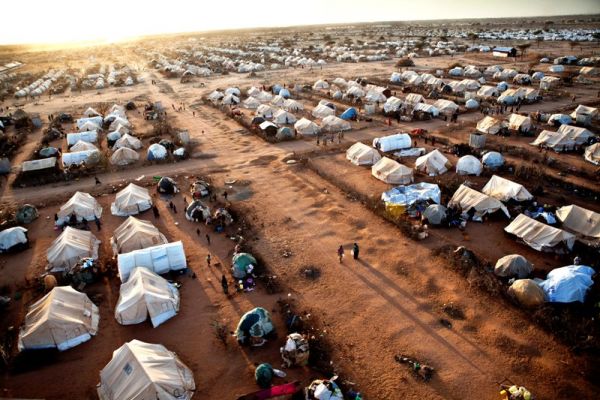UN says 65 million people displaced in 2015, a new record

” The U.N. refugee agency says persecution and conflict in places like Syria and Afghanistan raised the total number of refugees and internally displaced people worldwide to a record 65.3 million at the end of last year.
The previous year, 2014, had already seen the highest number of refugees worldwide since World War II, with 60 million displaced people. But last year ” when Europe staggered under the arrival of large numbers of migrants ” topped that record by nearly 10 percent, the UNHCR said Monday in unveiling its annual Global Trends Report.
The Geneva-based agency urged leaders from Europe and elsewhere to do more to end the wars that are fanning the exodus of people from their homelands.
“I hope that the message carried by those forcibly displaced reaches the leaderships: We need action, political action, to stop conflicts,” said Filippo Grandi, the U.N. High Commissioner for Refugees. “The message that they have carried is: ‘If you don’t solve problems, problems will come to you.'”
With stark detail, UNHCR said that on average, 24 people had been displaced every minute of every day last year ” or 34,000 people a day ” up from 6 every minute in 2005. Global displacement has roughly doubled since 1997, and risen by 50 percent since 2011 alone ” when the Syria war began.
More than half of all refugees came from three countries: Syria, Afghanistan and Somalia.
Turkey was the “top host” country for the second year running, taking in 2.5 million people ” nearly all from neighboring Syria. Afghan neighbor Pakistan had 1.6 million, while Lebanon, next to Syria, hosted 1.1 million.
Grandi said policymakers and advocacy groups admittedly face daunting challenges helping the largest subset of displaced people: Some 40.8 million internally displaced in countries in conflict. Another 21.3 million were refugees and some 3.2 million more were seeking asylum
More than a million people fled to Europe last year, causing a political crisis in the EU.
Grandi called on countries to work to fight the xenophobia that has accompanied the rise in refugee populations, and decried both physical barriers ” like fences erected by some European countries ” as well as legislative ones that limit access to richer, more peaceful EU states.
Such European policies were “spreading a negative example around the world,” he said.
“There is no plan B for Europe in the long run,” Grandi said. “Europe will continue to receive people seeking asylum. Their numbers may vary … but it is inevitable.”